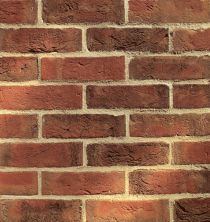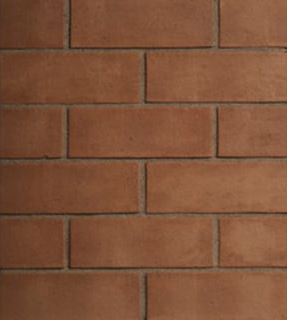Brick Calculator
Use our brick calculator to give you an indication of how many blocks you need for any project. Whether you’re building a wall, a new extension or a brick barbeque, we’ll help you cut down on waste and over-spending on building supplies you don’t need.
Area Calculation
0
Bricks needed to cover 0 ft2
(including 0.4 inch mortar joint)
Calculator Settings
How many bricks per m2?
As a guide, you need around 60 bricks per m2 for a single layer (or half brick) wall, or 120 bricks per m2 for a two layer (one brick) wall. Multiply the wall length by height to get the area, then multiply that by 60 to get the number of bricks you need - plus an extra 5%-10% for wastage.
Remember that this estimate is based on a standard sized brick. Be sure to measure the exact size of your brick first. A standard UK brick size is (LxWxH) 215 x 102.5 x 65mm, but depending on the type you use the size can vary. Keep in mind too that the size of the mortar joint can affect your estimate, as well as the type of brick, pattern and wall type you’re building. More experienced bricklayers may also need less wastage, whereas if you’re a novice you may want to add more for potential wastage.
To make your brick estimate easier, use our brick wall calculator to work out how many bricks or blocks you’ll need for any project. Whether you’re building a wall, a new extension or a brick barbeque, we’ll help you cut down on waste and avoid over-spending on building materials you don’t need.
How to use our brick calculator tool
This brick wall calculator tool helps you more accurately work out how many bricks you’ll need for your project. The brick calculator works in both metric and imperial, and you’re able to add in the exact size of the brick and mortar thickness you’re using.
Simply put in the area you need to cover, select metric or imperial, add the size of brick you want to use, your mortar joint size and whether you want to add 5% wastage - it’ll then automatically calculate how many blocks you’ll need, to save you doing the sums. It’s a fast and accurate way to help you work out the materials you need before ordering.
The brick calculator tool automatically adds in a standard 215 x 102.5 x 65mm brick size and 0.4 inch (10mm) mortar joint to assist you, but you can customise these to match what you’re using. If you'd like to know how many bricks per m2 of wall you’ll need, simply enter 1m into both the height and width boxes.
FAQs
How many bricks per m2 do I need?
As a guide, you need around 60 bricks per m2 for a single layer (or half brick) wall, or 120 bricks per m2 for a two layer (one brick) wall. Multiply the wall length by height to get the area, then multiply that by 60 to get the number of bricks you need - plus an extra 5%-10% for wastage.
How many bricks do I need for a 4 by 4 metre room?
To cover a 4 x 4m room (16 m2) you’ll need approximately 950 bricks, plus additional for wastage. This is based on 10mm mortar, a standard sized brick and a single layer brick wall project. Use the Travis Perkins brick wall calculator tool for an accurate estimate based on the exact brick size and mortar joint you’re using.
How many 65mm bricks per m
A standard UK brick size is (LxWxH) 215 x 102.5 x 65mm, and you’ll usually need approx. 60 bricks per m2 for a single layer (half brick) wall, or 120 bricks per m2 for a two layer (one brick) wall. Make sure you double check the brick measurements though, and remember that the size of the mortar joint can affect your estimate too.
How much area does 1000 bricks cover?
1000 bricks of a standard UK size will cover a 4 x 4m (16 m2) area, with enough to spare for 5% wastage. This is based on a 10mm mortar joint and a single layer wall. This can vary though depending on the exact size of brick you are using and the pattern in which you lay them.
How much cement will I need?
To work out how much mortar you need, measure the area size of the wall you’re building, the sand to cement ratio you’ll use and the mortar joint thickness. As a guide, you need approx. 120 kg of cement per 1000 standard sized bricks, plus 0.4 m3 of sand for a 1:5 mortar mix. Some ready to use mortar states on the label how many bricks it lays.
How many bricks are required for 1m3 of brick work?
Approximately 500 bricks are needed for a 1m3 brick wall. This is based on a 10mm mortar joint and a standard UK brick size. You may want to add an additional 5% more for wastage, which would mean you’ll need to order 525 bricks, and if the brick size is smaller you’ll also need more.
Disclaimer: The information contained on this page is intended as an overall introduction and is not intended as specific advice from a qualified professional. Travis Perkins aims to avoid, but accepts no liability, in the case that any information stated is out of date. Please note there are many variables when calculating brick numbers, so please use the calculator as a guide only.






